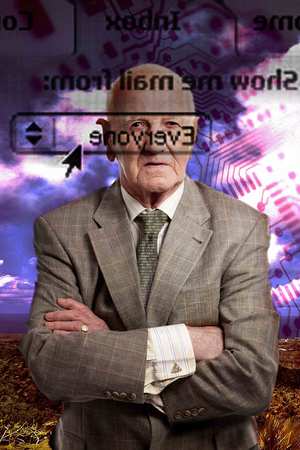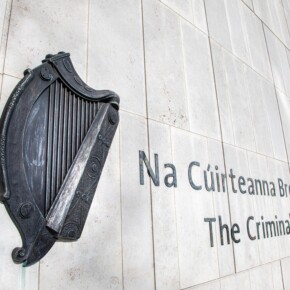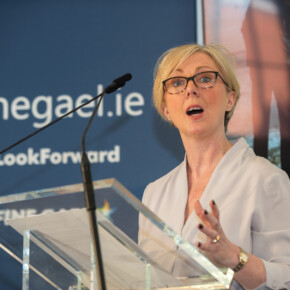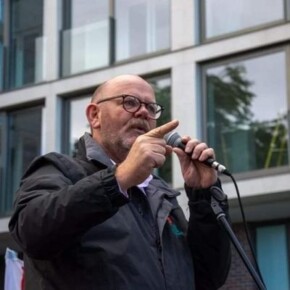Learning new tricks
Dublin People 10 Dec 2011
FINGLAS man Tom Canavan first began to notice a change
in his vision not long after his eldest son passed away in 1999.
He started to get headaches and became convinced he
had developed a brain tumour, a fear amplified by the fact that his son had
died of cancer.
“I went to the Mater Hospital and they found that the
pressure in my right eye was too high so they released it,
? Tom, who turned 81
this year, recalls.
“After a second visit something went wrong and I lost
the sight in my right eye due to nerve damage.
?
And then it got worse. During a visit to a specialist
for skin cancer a few years ago, Tom noticed a poster about vision in the
waiting room and asked the consultant to refer him to a specialist as he was
having difficulty seeing with his left eye.
It was then that age-related macular degeneration
(AMD) was diagnosed. AMD affects the macula – a small part of the eye which
allows you to see detail.
There are two types of AMD, dry AMD and wet AMD.
Unfortunately there is currently no treatment for dry AMD, which Tom has and he
was left with very little vision in his left eye.
“People ask me what it’s like but it’s hard to
explain,
? says Tom. I can’t see my wife’s face as well as I could. Today the
sun is shining and I’m looking out the window into the garden. I know there’s a
swing set there for the grandchildren but I can’t see it.
“I can’t mow the lawn anymore so we have someone who
comes in to look after the garden for us. But the main thing is the loss of
independence and always having to ask other people for assistance. For example,
I dropped a knife in the kitchen this morning and I couldn’t find it so I had
to ask my wife.
“Even though I have a small bit of sight in my left
eye I can’t identify objects and I can’t read. I meet people I used to work
with around Finglas but I don’t recognise them because I can’t see them. Now
people are more aware of my sight problems so they will introduce themselves to
me.
?
Tom has been married to Maureen for 61 years and
living in the same house in Finglas for 52 years. He worked for Gateaux for 35
years, where he was the safety and security manager before he retired.
“I met Maureen in Lemons sweet factory, and then had a
brief stint as a footballer with Hull City but when that didn’t work out I came
home and worked in Cadburys. I moved to Gateaux and stayed there until I
retired.
?
One of the biggest impacts of sight loss for Tom has
been giving up driving and his beloved gardening. One of his sons has organised
for someone to tend to the garden but not being able to drive is an on-going
issue.
“We used to drive to our son’s grave once a week,
?
explains Tom.
“We got great consolation from being there and talking
to him. But of course now I can’t drive anymore so we are relying on people to
take us when they can which means we can’t get there as often as we would
like.
?
But despite the difficulties Tom has managed to find
independence in other ways and is undergoing what he calls
“a new lease of
life
? thanks to getting in touch with National Council for the Blind Ireland
(NCBI), the national sight loss agency based on the Northside.
“My eye specialist told me about the NCBI but I didn’t
want to know at first,
? says Tom.
“I didn’t think they could offer me anything.
Eventually I went, very reluctantly, to the Iona Centre, which is a day centre
for adults with sight loss in Glasnevin.
?
NCBI is a not-for-profit organisation which provides a
range of services to people who are blind or vision impaired so they can
overcome the barriers that impede their independence.
At 80-years-of-age it happens to be one year younger
than Tom. As our population ages, sight loss is becoming more prevalent and
NCBI is seeing an annual increase of about 12 per cent in the number of people
coming to the organisation for the first time.
The majority of people who use NCBI’s services are
over the age of 65 and 50 per cent are over the age of 76.
When he finally made the difficult decision to seek
assistance to deal with his sight loss, Tom was relieved to meet other people
going through the same thing at the Iona Centre and found it a relief not to
have to explain his sight loss to anyone.
“There is a great camaraderie amongst us,
? he
continues.
“There’s no need to talk about your eyes and how bad they are as
everyone is going through something similar.
“We all know each other so well; we ask after our
families and look out for one another if we miss a day. It’s a comfort zone for
me and the staff are excellent.
“The Iona Centre has helped me to accept my
disability. I would love for my sight to get better but that’s not going to happen.
It’s something that could really get you down so I have to find ways around it
and stay positive.
?
One of the most important things Tom has learned at
the Iona Centre is computer skills. He admits that, when he first walked into
the computer room, by accident, he didn’t know why blind people would need
computers.
“But that was just the beginning,
? he says.
“I can now
contact my children who live in Australia and New York and keep in touch with
their children too. I am about to go online to email a friend in South Africa
so the freedom it has given me is fantastic.
?
Tom uses software called Guide, which reads aloud
everything that is on the computer screen and enables him to use the same
applications as everyone else.
Services offered by NCBI include rehabilitation
training, independent living skills, mobility training, IT training, guidance
in choosing a range of assistive technology, such as the software that Tom
uses, employment advice and counselling.
The organisation also has a low vision service, where
people who are having significant difficulty with their sight may be prescribed
magnifiers to help with reading and other activities, an online shop with
useful products for people with impaired vision, an early learning centre for
children in Clondalkin, a national Braille, audio and large print library and
day centres in Dublin and Wexford, such as the Iona Centre, which Tom attends
weekly.
“I went to visit the optometrist at the low vision
service in NCBI and he asked me if I was using a cane,
? says Tom.
“I wasn’t at the time and he suggested that a symbol
cane would be a good idea. I have found it invaluable. I’m able to get to our
local shop on my own and do a little bit of shopping.
“When people see me standing by a shelf they now ask
if I need help, which is great. It’s the same when I’m crossing the road. I
stood by the bus stop one day by accident, thinking it was the pedestrian
crossing.
“The bus driver stopped and when we realised the
mistake I had made he stopped the bus to get out and help me across the road.
“I was so reluctant to go to NCBI. Pride feels no
pain. I could picture myself with a white stick and I didn’t want to be in that
category. But it was the best decision I ever made.
?
?¢ To find out more about NCBI or to make a one-off or
regular contribution to the charity visit www.ncbi.ie or phone LoCall
1850-334353.











